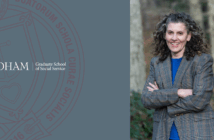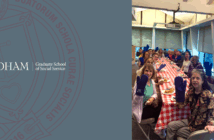In honor of International Transgender Day of Visibility (March 31), GSS is proud to celebrate GSS community members who identify as transgender or gender-nonconforming (TGNC), and raise awareness for the work that still needs to be done to fight cissexism and to ensure the human rights and social justice of all TGNC persons.
We asked those featured below what both the holiday (officially declared a national holiday by President Biden in 2021), as well as the term “visibility,” means to them, as well as to highlight themselves and their accomplishments.
Additionally, below you will also find research with TGNC persons conducted by GSS faculty — furthering the importance of TGNC visibility not only in academia, but in society as a whole — as well as additional resources to continue the day’s celebration and ongoing advocacy.
Student Spotlights
 Job Christenson
Job Christenson
All my life, I felt like an outsider to my own story, as if I was watching myself in another story. As a child, I used to dress in all kinds of different expressions but was told by my family that it would have to be a secret that I kept in my room. It wasn’t a form of drag, it was a small glimmer of the person that I was to become.
After many years of feeling removed from the environments I grew up knowing, I was never going to fit in to the expectations of what I was supposed to be. Through much reading and investigating, I found my place. With the help of dear friends, I decided that I was coming out as non-binary. It was as if my entire world suddenly made sense and I was finally living my authentic truth. I wasn’t male or female. I never was. I never fit into a binary approach to gender, This is hard for people to grasp, but it made perfect sense to me.
In 2012, I survived a massive stroke where I lost my entire right side, my ability to walk and my ability to talk. In rebuilding and recovering, I found that I could slowly and finally seek my true self in this world. This was my chance to awaken to my true self and to continue to discover who I can become. My movie and my play allowed me to seek out the expression of myself that I had always been.
Learn more about Job:
Job Ethan Christenson is a non-binary, disabled playwright, director and performer in New York City. Job performed as an actor in CATS, RAGTIME, JESUS CHRIST SUPERSTAR, JOSEPH, BILLY ELLIOT just to name a few. He then worked in Chicago doing productions at Marriott Lincolnshire, Chicago Shakespeare, and his very own cabaret show at the Gentry, as well as Davenports. Job did voice overs, benefits and fundraisers working with the Actors Fund and BCEFA. He has also performed with various symphonies including Ann Arbor, Grant Park, Detroit, Bismarck and Grand Forks Symphonies as a soloist. Job had the honor of performing for President George W. Bush and First Lady Laura Bush in East Room at the White House.
He received his training from the University of Michigan and later received a degree from Empire State College and is currently receiving a graduate degree in social work from Fordham University ’23.
He was the artistic director for 6 years of the ND Ballet Company and Apprentice School and Crimson Creek Players. He has been the Artistic Director/Development Director for Sleepy Hollow Theatre and Arts Park for the past six years.
As a playwright, Job Ethan Christenson has written The Theist, Mfundo, Out of the Human Town, Where The Wild Ones Play, The Living Trees, The Rigger, In Bed: An Anthology (3 short plays), BOJ, American Star Motel. He directs and writes for the SUNY Project and belongs to KQ Playwrights. He is published by Indie TheatreNow
On December 28, 2012, Job suffered a massive stroke where he lost his entire right side, his ability to walk and his ability to speak. He has been recovering and reinventing himself for the past 8 years and developing his one man show. A movie version of BOJ will be presented later this year by Isaac Bush and Nathaniel Irvin. BOJ is a winner of the NY and Conquering Disabilities Award, IndieFEST, NYIFA, Hollywood International, 1st Monthly Filmmakers, Roma Shorts for best script, LGBTQ Unbordered, Best Shorts, Calcutta International, and a Finalist for NYTIFF, RED MOVIE, BE Festival, Vancouver Independent Film Festival and London Director Award. He is published by Indie Theatre Now. Job will be getting his master’s from Fordham in Social Work Class of January ‘23.
Trailer BOJ
https://vimeo.com/559771871
BOJ the movie
https://vimeo.com/509998977
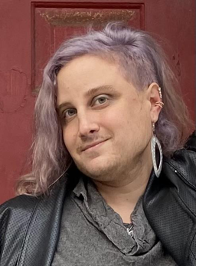 Dr. Z Paige Lerario
Dr. Z Paige Lerario
The Daily Visibility of Nonbinary Identity in Social Innovation
Mackenzie P Lerario, MD, NYS CRPA/CPS-provisional
MSW Candidate, Fordham Graduate School of Social Service
Vice-Chair, LGBTQI Section of the American Academy of Neurology
March 31, 2022
As a graduate student of social service at Fordham University, I take my positionality seriously. I am white, I am a physician, I am able-bodied, and I have had every educational opportunity available to a person born in the United States. I am also transgender and nonbinary, which too often takes a front seat in how people perceive me. I am visibly out and trans most days of the year. And because of this, most people are surprised to learn I am a neurologist.
That’s probably because I do not “pass” in society as a cisgender person and because I exist in this world as neither a man nor a woman. I am in the mindset that I do not owe it to society, to my colleagues, to my clients, or to anyone else to look or act in a specific way before I am respected as myself and the identities I claim. I am exactly what a neurologist looks like, nothing more and nothing less.
I have learned the importance of this self-affirmation as a social work student. Loving oneself is a part of self-care, self-improvement, and self-empowerment. And I believe as a future social worker, I should first make progress toward loving myself before I can be fully available to the clients I serve.
Often the societal expectation is transgender people should “pass” visibly and behaviorally as cisgender; that is, we should not appear as transgender openly. In many of the helping professions, this forced cisgender normalization erases culturally appropriate standards of transgender and nonbinary expression and identities. Although transgender people have existed everywhere through all of time, many of us are silenced by violent oppression: such as banning healthcare, banning sports participation, banning representation in education, and banning facilities access, among various others.
The majority of Americans have not knowingly had a conversation with a transgender person (Minkin & Brown, 2021). This includes some of our country’s decision makers and thought leaders (Crary D & Whitehurst L, 2021). So how can they make informed decisions on laws and policies which affect transgender people? And do those of us with a transgender family member, coworker, fellow student, teammate, or friend wish for these policies to be made without adequate representation from the communities affected? This is a time when one in fifty members of generation Z identify as transgender, and one in five identify within the LGBTQ+ community (Jones JM, 2022). We need social innovation and structural adaptations to accommodate a quickly changing demographic of the incoming American workforce.
On this day, now nationally recognized by President Biden, we acknowledge what barriers and biases many transgender people encounter daily in achieving the many successes of our community. For me, the Transgender Day of Visibility shows respect for the authentic self which I (and so many others before me) display to the world, and the consequences we have faced in doing so.
I admit I am privileged. I am privileged to afford health insurance and surgeries and new wardrobes and legal name changes. Too many transgender people do not have these privileges. Some may need to hide, out of safety—emotional or physical— or for fear of losing employment, housing, healthcare, family, friends, mentorship or education.
Nevertheless, gender diversity in any form or voice is a gift to be celebrated. Nonconformity to outdated binary standards of gender expression need not only be championed by those who are transgender or nonbinary. I view my gender expression as free expression of identity, of thought, of self, and of art. Some forward-thinkers may perceive my gender expression favorably, some may feel ambivalent, and some may laugh or scowl at it or have violent or shocked reactions to it. Nevertheless, it commands attention.
Therefore, I urge readers to stand out in their gender expression, today, and every day. And above all, recognize the gift of authenticity and empowerment transgender people provide to the world every day of the year.
References:
Crary D & Whitehurst L (2021). Lawmakers can’t cite local examples of trans girls in sports. Associated Press News. Accessed online on March 15, 2022 at: https://apnews.com/article/lawmakers-unable-to-cite-local-trans-girls-sports-914a982545e943ecc1e265e8c41042e7.
Jones JM (2022). LGBT Identification in U.S. Ticks Up to 7.1%. Gallup: Politics. Accessed online on March 15, 2022 at: https://news.gallup.com/poll/389792/lgbt-identification-ticks-up.aspx.
Minkin R & Brown A (2021). Rising shares of U.S. adults know someone who is transgender or goes by gender-neutral pronouns. Pew Research Center. Accessed online on March 15, 2022 at: https://www.pewresearch.org/fact-tank/2021/07/27/rising-shares-of-u-s-adults-know-someone-who-is-transgender-or-goes-by-gender-neutral-pronouns/.
 Learn More about Z:
Learn More about Z:
Mackenzie (Z) P Lerario, MD, NYS CPS/CRPA-p (They/them/Doctor) is a board-certified vascular neurologist, physician activist, telehealth advocate, peer specialist, Vice-Chair of the LGBTQI Section of the American Academy of Neurology, and social work student at Fordham University with a field placement at the National LGBT Cancer Network. Dr. Lerario has >30 peer-reviewed publications in prominent medical journals and frequently presents their work at major international conferences. They were the founding medical director of the NewYork-Presbyterian Mobile Stroke Treatment Unit Program.
As an openly-identifying pansexual, transgender and nonbinary neurologist, they are a member of the World Professional Association of Transgender Health and the Gay and Lesbian Medical Association. They serve on multiple regional and national organizations as a volunteer advisor on promoting equity and inclusion for sexual and gender minorities, including the American Heart Association and American Stroke Association. They are a founding member of the Gender Equity Working Group of the LGBTQIA+ Section of the American Academy of Neurology. They are the founding director of Greenburgh Pride in Westchester, NY.
GSS Faculty Research
 Dr. Kimberly Hudson
Dr. Kimberly Hudson
Article 1
Journal: Journal of Progressive Human Services
Abstract: Transgender women of color face numerous barriers to accessing quality health and human services due to intersecting systems of oppression. Using transmisogyny as a conceptual tool, the current study drew upon individual, in-depth interviews with ten transgender women of color living in New York City. Interpretive phenomenological analysis (IPA) was used to explore the experiences of participants in care settings and compare their experiences in LGBT-specific settings to non-specific settings. Results from this study suggest specific health and human services practices and policies can improve the healthcare experiences of transgender women of color and advance health equity for all.
Article 2:
Title: “We Are Powerful People”: Health-Promoting Strengths of LGBTQ Communities of Color
Journal: Qualitative Health Research
Abstract: Lesbian, gay, bisexual, transgender, and queer (LGBTQ) communities of color experience intersecting systems of oppression that limit access to health care, safety, and other basic resources. Important research has documented these disparities, their antecedents, and consequences. However, little research has examined the strengths of multiply marginalized LGBTQ communities. Drawing from a health equity framework, this study is based on interviews with 38 LGBTQ-identified people of color in New York City. We used framework analysis to examine participants’ perspectives on the role of community in enhancing health and well-being. Community strengths identified by participants included (a) safety, acceptance, and support; (b) interconnectedness and resource sharing; and (c) advocacy, collective action, and community potential. Recommendations for policy, practice, and future research are suggested, including efforts toward community power building.
 Dr. Laura Wernick
Dr. Laura Wernick
Article title: “Gender Identity Disparities in Bathroom Safety and Wellbeing among High School Students“
Journal: Journal of Youth and Adolescence
This article was also featured in Fordham News. Read the story here.
Abstract: By examining the relationship between trans identity, bathroom safety and wellbeing among high school students, this article empirically investigates how educational institutions operate as sites through which gender is negotiated in ways that are consequential for trans youth. We draw cross-sectional survey data, from a multi-school climate survey (n = 1046) conducted in the Midwestern United States, to examine three aspects of high school students’ wellbeing: safety at school, self-esteem, and grades. The sample included students in 9th–12th grade who identified as trans (9.2%) and cisgender (41.2% boys, 49.6% girls), as well as LGBQ (21.6%) and heterosexual (78.4%). Most respondents were monoracial white (65.8%), monoracial Black (12.4%), and multiracial (14.1%). Using mediation and moderation linear regression models, we show that feeling safe using school facilities helps to explain widespread inequalities between trans and cisgender students. Based on these results, we suggest that in order to address disparities in educational outcomes between trans and cisgender students, as well as to improve student wellbeing in general, policies and practices need to ensure that all students have the right to safely access bathrooms and school facilities.
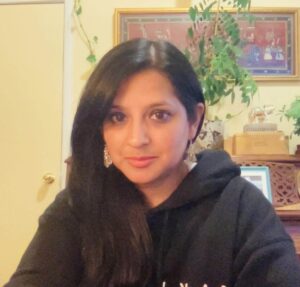 Dr. Sameena Azhar
Dr. Sameena Azhar
Article 1
Journal: AIDS Education and Prevention
Abstract: We collected 216 responses from sexually active MSM, transgender women, and gender-nonconforming (GNC) people of color through a web-based survey to understand the facilitators and barriers to research participation in a hypothetical LAI PrEP trial. In adjusted models, these items were found to be significantly associated with research participation likelihood: ever participated in HIV research study; comfort with taking daily pill; comfort with providing urine sample; and concerns over potential side effects of shot. Asian participants were more concerned about others knowing they were being recruited than were Black and Latinx respondents F(2, 216) = 3.98; p < .05. Asian respondents were also less comfortable with being recruited at organizations serving communities of color than Black and Latinx respondents, F(2, 216) = 5.10; p < .05. Cisgender respondents were more comfortable with being recruited by a friend or colleague than were transgender/GNC respondents, F(1, 215) = 4.8; p < .05.
Article 2
Title: “Secret Lives and Gender Fluidity among Third Gender People Living with HIV in Hyderabad, India”
Journal: Journal of Community Psychology
Abstract: This mixed‐methods study sought to explore gender fluidity among people living with human immunodeficiency virus (HIV) in Hyderabad, India, almost all of whom did not identify as hijra. Sixteen gender‐nonconforming people living with HIV completed both surveys and in‐depth in- terviews, exploring their experiences with HIV and gender nonconformity stigma. Interviews were conducted in Hindi and Telugu, digitally audio‐recorded, then subsequently translated and analyzed in English, using interpretative phenomenological analysis. Our study highlighted three categories of gender expression: (1) “We have to maintain secrecy about our hijra life”: Living secret lives; (2) “What happens if my neighbor sees me here?”: Contextual disclosure; (3) “Twenty‐four hours a day I will wear a sari”: Being fully out. Analysis revealed that many gender‐nonconforming people reported identifying with two distinct gender identities: one in the daylight, where they identified as men and fulfilled a role of husband and father with their family, and another at night where they identified otherwise—as women, as third gender, as kothis, hijra, transgender. Themes reinforce a phenomenological interpretation of gender identity and expression in the south Indian context, which is grounded in practices regarding identity’s embodiment in clothing, vocal intonation, make-up, and context.
 Dr. Tina Maschi
Dr. Tina Maschi
Chapter title: LGBT Elders and the Criminal Justice System
Book Title: Handbook of LGBT Elders
This work was also featured in Fordham News. Read the story here.
Abstract: This chapter explores LGBT elders with histories of incarceration. Due to the paucity of the literature available on this population, this chapter provides new data from a qualitative study of ten formerly incarcerated LGBT elders’ experiences prior to, during, and after release from prison. Consistent with intersectionality theory, a core theme of self and the social mirror emerged from the data that represented LGBT elders’ ongoing coming out process of unearthing their ‘true selves’ despite managing multiple intersectional stigmatized identities, such as being LGBT, elderly, HIV positive, Reverse order, a member of a racial/ethnic minority, and being formerly incarcerated . These exploratory findings further our awareness of an overlooked population of LGBT elders involved in the criminal justice system. The implications for interprofessional and interdisciplinary policy and practice that incorporate suggestions from the formerly incarcerated LGBT elders for systemic reform are presented.
Article 2
Title: “Coming Out” of Prison: An Exploratory Study of LGBT Elders in the Criminal Justice System
Journal: Journal of Homosexuality
Abstract: This two-phase qualitative study explores the experiences of 10 formerly incarcerated LGBT elders’ experiences prior to, during, and after release from prison. A core theme of self and the social mirror emerged from the data that represented LGBT elders ongoing coming-out process of unearthing their “true selves” despite managing multiple stigmatized identities or social locations, such as being LGBT, elderly, HIV positive, formerly incarcerated, and a racial/ethnic minority. These findings further our awareness of an overlooked population of LGBT who are older and involved in the criminal justice system. Recommendations that incorporate suggestions from formerly incarcerated LGBT elders for services and policy reform are presented.
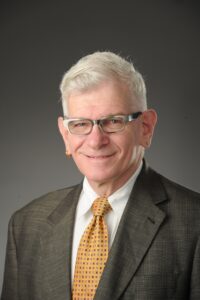 Dr. David Koch
Dr. David Koch
Next Tuesday (4/2) Dr. Koch will participate in an in-person event centered around the book Trans Bodies, Trans Selves.
“It’s a book that really is for both students as well as trans individuals and goes into a number of the issues the trans individuals contend with,” Koch said.
Learn more about the book here.
Resources
Anti-Trans Policies & Social Work Education:
A National Town Hall
Join social work scholars, educators, and students from across the US for a virtual town hall discussion about best practices in social work education to address anti-trans policies that conflict with professional ethics and values. The town hall will take place on March 31st from 2-4pm PST.
Watch via livestream: https://www.youtube.com/channel/UCvnL0LceNyyBi4UjnPLh9bg
Hosted by: the Center for LGBTQ+ Research & Advocacy and the University of Kansas SSW
Co-sponsored by: Virginia Commonwealth University School of Social Work, Sexuality Relationships Gender Collective at UM, University of Michigan School of Social Work, Michigan State University School of Social Work, MSU SGM Health Consortium, University of Denver Graduate School of Social Work, West Virginia University School of Social Work, University of Pittsburgh Social Work, Case Western Reserve University Mandel School of Applied Social Sciences, Queer Research Collaborative at CWRU, University of Wisconsin-Madison’s Sandra Rosenbaum School of Social Work, LGBTQ Caucus of Social Work Students & Faculty
Speakers include:
Sarah Mountz, PhD, MSSW, University @ Albany SSW
Ginger Chun, MSW, Transgender Education Network of Texas
Raye Dooley, MSW, Whole Being Therapy
Rae Obejero, BSW
Staff from Time Out Youth
Darren Whitfield, PhD, MSW University of Baltimore SSW
GLSEN Transgender Day of Visibility Resources
GLSEN, the Gay, Lesbian & Straight Education Network, is the leading national education organization focused on ensuring safe schools for all students. Established in 1990, GLSEN envisions a world in which every child learns to respect and accept all people, regardless of sexual orientation or gender identity/expression. GLSEN seeks to develop school climates where difference is valued for the positive contribution it makes to creating a more vibrant and diverse community
Please note that this post may not be representative of the entirety of those in the GSS community who identify as transgender/gender-nonconforming, nor all of the faculty research in this space.

